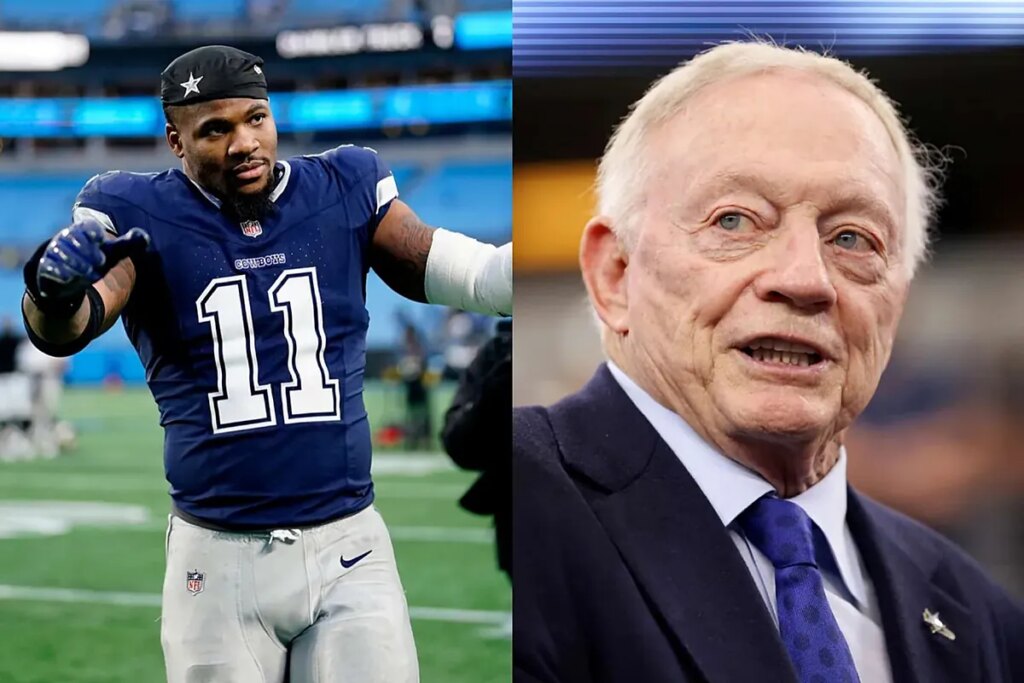The recent Micah Parsons saga has drawn sharp attention not just to the trade itself but to how Dallas Cowboys owner Jerry Jones managed the situation with Parsons and his agent, David Mulugheta.
Beyond the football implications, the way Jones approached this relationship might leave a lasting impact on the franchise’s reputation among players and agents alike.
An insider from the agent community didn’t mince words when discussing the Cowboys’ approach, calling it “damaging” and warning that no agent would willingly direct their top clients to Dallas in the future in a text to PFT Live.
Historically, the Cowboys have had a reputation for being a difficult organization to work with, but the perceived disrespect towards Mulugheta seemed to cross a new line. The agent described the situation as a “time to take the car keys away” moment for Jones, emphasizing that this episode could hurt Dallas’ ability to attract talent moving forward.
In the world of NFL negotiations, money is obviously a major factor. However, teams that maintain positive relationships with agents and players often benefit by becoming the preferred destination, even if they’re not offering the absolute highest financial package.
Unfortunately for Dallas, Jones’ approach to agents, viewing them as mere bystanders rather than essential partners in the process, seems to be alienating a crucial part of the player recruitment equation.
The long game: Who really won?
While the Cowboys rushed to hold a press conference to assure fans and media that they had “won” the Parsons situation, the bigger picture suggests otherwise. Agent David Mulugheta, despite the disrespect he endured, stuck to his strategy. He secured a lucrative deal for Parsons, with a staggering average annual value of $47 million. Even more telling, Parsons chose a new team, the Green Bay Packers, as a direct response to Dallas’ treatment.
The Packers didn’t feel the need to explain their move to the media; they are confident the results will speak for themselves. Meanwhile, Dallas risks watching from the sidelines as Parsons potentially leads Green Bay to new heights, including possible Super Bowl contention.
Jones and the Cowboys are unlikely to admit any missteps publicly. Instead, they continue to portray the trade as a victory, despite the potential long-term consequences. But the underlying message to agents and players is clear: Dallas may not respect or value the relationships that are essential for building a championship-caliber team in today’s NFL.
Looking ahead, the true fallout of this dispute will unfold over the next few seasons. If Dallas wants to compete for top talent in future free agency periods, they may have to dig deeper into their pockets or, more importantly, rethink their approach to player relations and agent respect.
Otherwise, the Cowboys could find themselves paying a premium just to convince players and agents to accept the same kind of treatment that turned Parsons away.
In a league where trust and respect can influence where stars choose to play, the Cowboys risk isolating themselves in the pursuit of short-term gains, potentially damaging their long-term competitiveness.
Read the full article here

